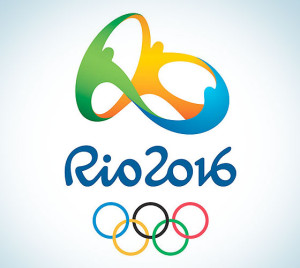Off to the Olympics - Challenges in Rio
Rising flags, clutch finishes, and bright stadium lights. The Olympics would not be complete without them. The Games are an exciting event for everyone: a time for fans to cheer, athletes to shine, and for the host nation to showcase the best of the country. From the planner’s perspective, however, the greatest challenge comes far before the opening ceremony. In 2016, the Summer Olympics will be set in Rio, Brazil, but scandals, protests, and mishaps have created tensions that can be felt in every corner of the nation just as Brazil enters its most intense preparation period.

The seed for unrest was sown early on when it was announced that Brazil would host two mega-events within the span of three years. Leading up to the 2014 FIFA World Cup in Rio, mass protests broke out when protests against increasing bus fares escalated into an all-out attack on the government. Authorities were accused of pouring exorbitant amounts of spending into preparation for the World Cup while failing to provide adequate services to their own citizens. Now, with the Summer Olympics within sight and President Dilma Rousseff re-elected to a second term, more than two million people took to the streets of São Paulo on March 15 in one of the largest political demonstrations in the nation’s history. Anti-government protests have targeted their attacks against Dilma and her Workers’ Party administration, with some calling for the president’s impeachment over a bribery scandal at Petrobras, the state-owned oil giant.
The protests also come at a time when the nation is desperately grappling with an unfortunate energy and water crisis, further implicating the current administration for its ineffective policies and neglectful governance. In addition, the planning period has been fraught with logistical problems with regard to time, infrastructure, and event locations. With deadlines approaching quickly, there has been a great deal of pressure on event planners as they race against the clock to finish building and preparing venues for various sports events. Furthermore, as São Paulo faces one of its worst-recorded droughts, there is fear that the city could drop as the Olympic host, and there is currently no plan B for a location to host the Olympic soccer tournament. The dirty bay in Rio also adds to the list of complications, as Brazil races against time to clean up the polluted waters of Guanabara Bay, which is supposed to be the venue for the Olympic sailing events. The Brazilian government has pledged to cut the bay's pollution by 80 percent, but much work remains to be done, and it is still too early to tell whether the bay will be ready in time.
In short, the planning period for the 2016 Summer Olympics appears to be a logistical nightmare for the main planners involved. Brazilians perceived winning the bid as a great opportunity for the nation, but hope and pride quickly deteriorated as feelings of frustration took over instead. Domestic unrest coupled with logistical challenges have made the road to the Olympics a bumpy one for Brazil. In many ways, Brazil is seen as an example of success in Latin America, and for many, Brazil is perceived as a world power. As a country with great potential, Brazil has experienced difficult times reaching that potential. Many problems have become manifest as the Olympics near, and only time will tell whether or not Brazil will be able to pull through and overcome its challenges in time for summer 2016.
